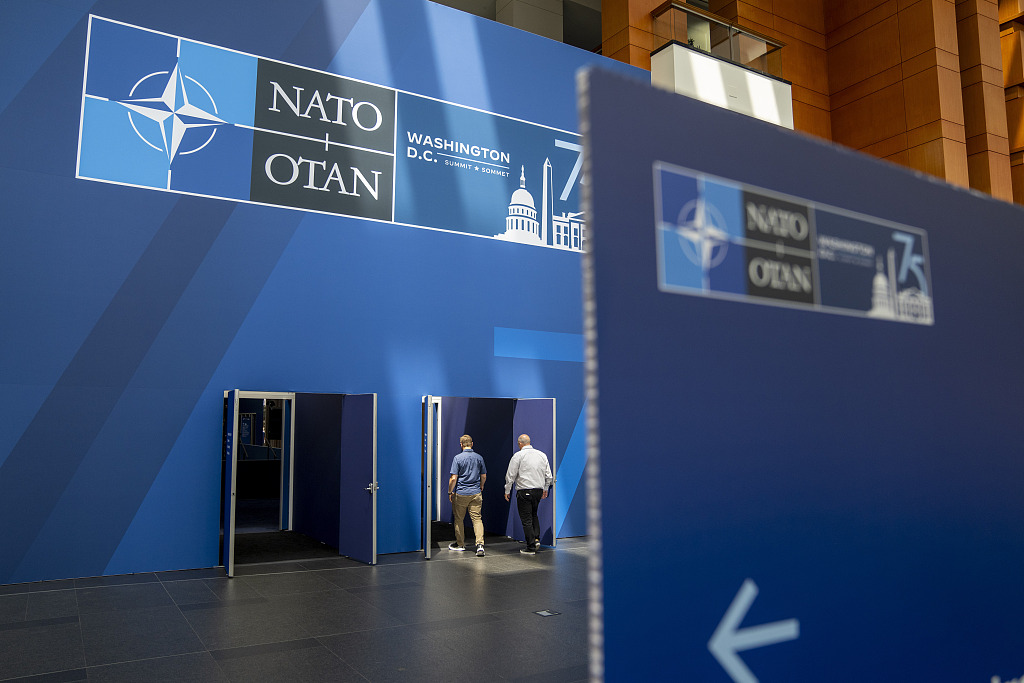NATO: Seeking to spread its contagion to Asia


For an institution established originally as a defensive alliance, at the recent NATO Summit, held in Washington 9-11 July was full of war talk.
At the core of the meeting was the Ukraine conflict, one which has taken the status of being some righteous crusade for NATO, with the defeat of Russia being viewed as integral to Western interests.
Opening the Summit, US President Joe Biden asserted, contrary to the battlefield situation, “Russia will not prevail, Ukraine will prevail,” while NATO committed itself to the provision of providing new air defense systems to Ukraine, along with increased armaments.
Ukraine’s accession to the Alliance was further facilitated, claimed now to be “inevitable", of course. Under Article 5 of the NATO Treaty, such accession would automatically lead to the organization being at war with Russia. Given the preponderance of nuclear weaponry held by each side, the result of such risks is apocalyptic.
The genesis of the war is found in the broken promises made to Russia at the conclusion of the Cold War for NATO not to expand eastwards toward Russia. That promise, however, has been broken numerous times with succeeding waves of eastern European states, ever closer to Russia, becoming part of the Alliance.
From 2008 the US and its NATO allies have made clear that they wished Ukraine to join NATO, despite this being the "red line’” for Russia. Russian President Vladimir Putin several times spoke of how much would be viewed as an existential threat to Russia and would not be tolerated. NATO however apparently does not believe that ‘nyet’ means ‘nyet’ and has continued to ‘push the envelope.’
Following its victory in the Cold War, NATO seemingly has set out to humiliate its former adversary, evidently not heeding any lessons from history that would temper its enthusiasm. Versailles and the humiliation of Germany after World War I, with the disastrous results that was caused, come to mind. NATO apparently has forgotten even its own genesis was made in tandem with the creation of the Marshall Plan, a plan, which after seeing the result of the Versailles treaty, generously dealt with Germany after World War II.
The Alliance, particularly the US has continued to meddle in the affairs of Ukraine, fermenting the ‘Maidan Revolution’ while lying about autonomy and protection for the majority of Russian regions in Ukraine in the Minsk Accords.
Now NATO wants to bring this militarism to Asia. Why Asia? Having not known war for 45 years, one would want the presence of this aggressive Alliance, one cannot know. Of course, the majority of Asians have no desire to even countenance NATO’s presence. Yet four nations in the region have signed up to NATO’s agenda; Japan, South Korea, Australia and New Zealand.
The NATO Asian agenda is clearly aggressive. While its current ‘bad boy’ is Russia, it still views its main threat as China. Such is seen in the words of the organization’s current Secretary-General, Jens Stoltenberg. That also shows that in today’s world, security is not a regional matter but a global one. Europe’s security affects Asia, and Asia’s security affects Europe.
"NATO has also better prepared itself for enduring competition with China, including by reducing harmful dependencies and increasing protection of its critical infrastructure, strategic materials, and supply chains.”
Chinese Foreign Ministry spokesperson Lin Jian responding, issued a stern warning, charging that NATO by "breaching its boundary’ represented the ‘real source of risks threatening global peace and stability.”
“NATO should stay within its role as a regional defensive alliance, stop creating tensions in the Asia-Pacific, stop peddling Cold War mentality and bloc confrontation. NATO should not try to destabilize the Asia-Pacific after it has done so to Europe.”
As former Australian Prime Minister, Paul Keating eloquently put it concerning NATO, “Exporting that malicious poison to Asia would be akin to Asia welcoming the plague on itself.”
Asia, rather than needing the aggressive brinkmanship that NATO brings, needs to continue its successful path of peaceful cooperation.
John Queripel is a Newcastle, Australia-based, writer, historian and social commentator.
The views don't necessarily reflect those of China Daily.
If you have a specific expertise, or would like to share your thought about our stories, then send us your writings at [email protected], and [email protected].

































